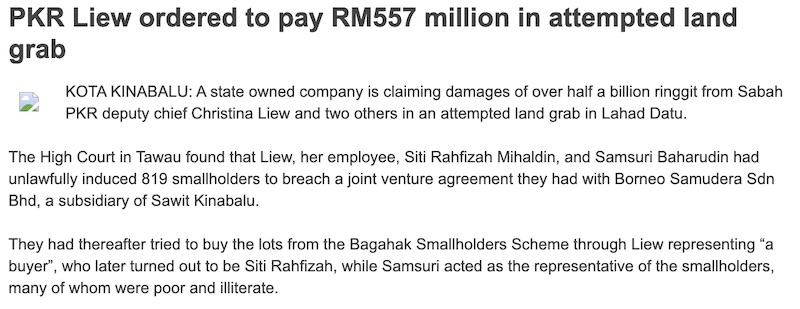PKR wants Muslims to reject the Qur’an
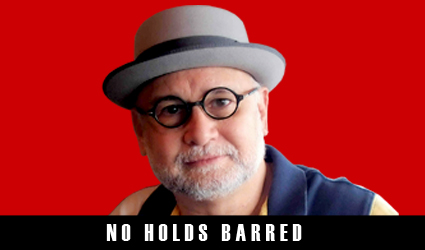
So, if you want to be allowed into Sabah, do the opposite of what the Qur’an says. If you want to follow what the Qur’an says, stay out of Sabah. And, under pluralism, not only Muslims get to go to heaven. In fact, you do not even need to accept Jesus Christ to get to go to heaven. You can pray to a giant teapot and still go to heaven. That is called pluralism.
NO HOLDS BARRED
Raja Petra Kamarudin
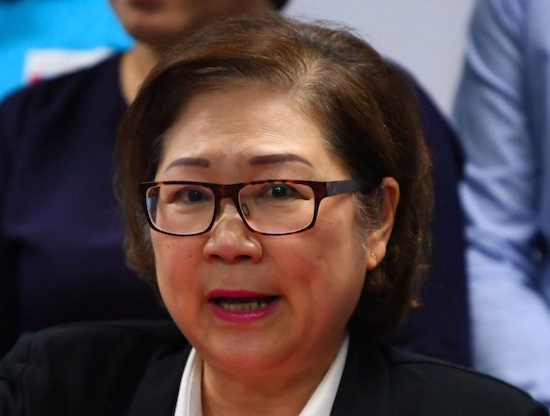
Sabah PKR chief Datuk Christina Liew strongly opposes the proposal to appoint a PAS (Parti Islam Se-Malaysia) representative to the State Legislative Assembly and government.
Liew stressed that the proposal to include a PAS representative in the State Legislature and government is not acceptable to the people, given that Sabah is an exemplary Malaysian state for multiracial, inter-religious and multi-cultural harmony where peaceful co-existence has been the hallmark of our lives.
“The people of Sabah embrace the principle of moderation and concept of unity in diversity, as opposed to the political culture of divisiveness which potentially causes racial discord.”
“We denounce any political ideology that is in conflict with multiculturalism (as a political philosophy), and cannot accept any brand of politics that smacks of extremism.”
“The people reject outright the proposed inclusion of a PAS representative in the Sabah State Assembly as the move would hurt the multi-cultural character of the state.” (READ MORE HERE)
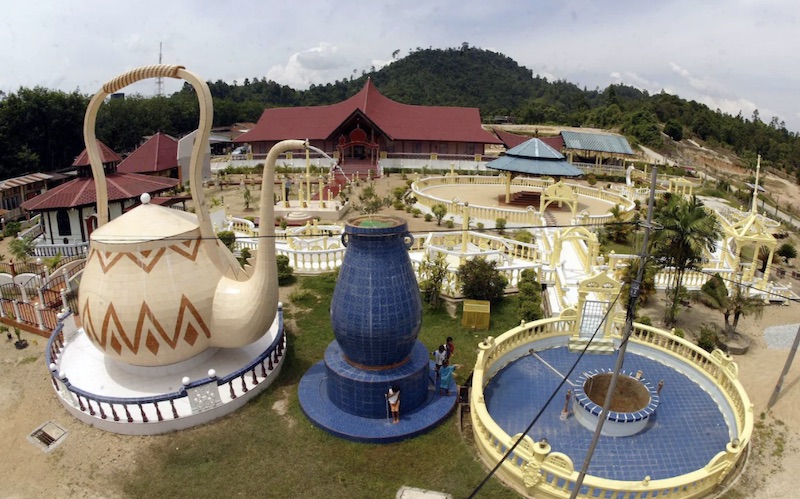
In Sabah, Ayah Pin’s Teapot Kingdom cult would be welcome
Another way of saying what Christina Liew said is PKR stands for pluralism and the party rejects the doctrine of Islam, which is what PAS stands for.
To most non-Muslims, Christina Liew included, anyone who is compliant to Islam (what in this modern age we call “sharia-compliant”) is extreme.
When Christina Liew says “multi-cultural character of the state”, she means pluralism, the norm in Sabah. That means all religions are good and all religions are equal and the same. It does not matter whether you are a Jew, Christian, Muslims, Hindu, Buddhist, etc. Everyone gets to go to heaven, never mind which religion you believe in.
In other words, you do not need to believe in Allah, Prophet Muhammad, the Qur’an, the Hadith, etc. You can follow Ayah Pin and be a member of the Teapot Kingdom and you will still get to go to heaven.
Muslims such as those in PAS follow the Qur’an. They do not do what the Qur’an says they must not do, and they will do what the Qur’an says they must do. This type of Muslim is an extremist and must be rejected and banned from Sabah, says Christina Liew.
Muslims who do the opposite of what the Qur’an says are good Muslims. They are liberals and moderates. They drink, gamble, have sex with their neighbour’s wife, and so on. These are not extremist Muslims and are the type of Muslims who can be allowed into Sabah.
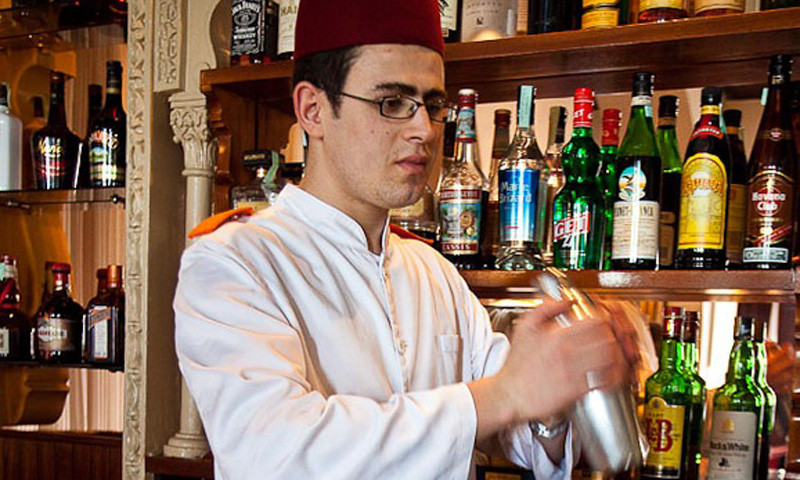
Moderate and liberal Muslims are welcome in Sabah, says PKR
If you are a Christian and you religiously follow what the Bible says, you are a good Christian. If you are a Muslim and you religiously follow what the Qur’an says, you are a bad Muslim. Logically speaking, that can only be because the Qur’an itself is bad. The fruit of a poisonous tree is poisonous, as they say.
Christina Liew has studied the Qur’an in great depth and she knows what the Qur’an says. So, she knows the meaning of good Muslim and bad Muslim. Bad Muslims are those who follow the Qur’an. This type of Muslim is an extremist.
The bottom line is: good Muslims are bad Muslims and bad Muslims are good Muslims. And good Muslims are those who do not follow the Qur’an while Muslims who follow the Qur’an are extremists. This is what Christina Liew is trying to explain.
So, if you want to be allowed into Sabah, do the opposite of what the Qur’an says. If you want to follow what the Qur’an says, stay out of Sabah. And, under pluralism, not only Muslims get to go to heaven. In fact, you do not even need to accept Jesus Christ to get to go to heaven. You can pray to a giant teapot and still go to heaven. That is called pluralism.
